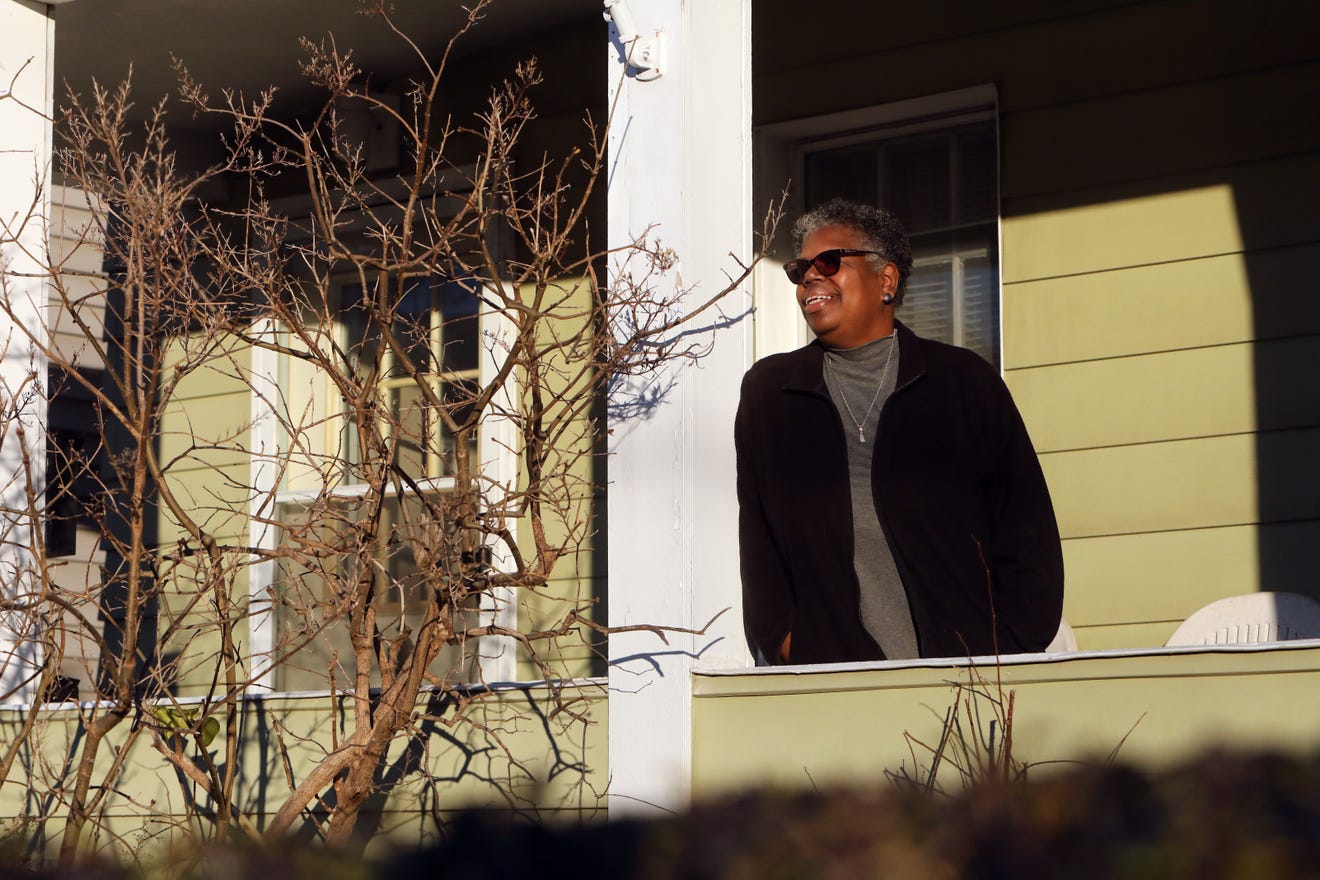
For Christina Whitely, the annual property tax break she receives from the town of Greenburgh allows her to reside in the family home on Mechanics Avenue she inherited years ago, cutting her annual tax bill in half — by almost $8,000.
But the COVID pandemic has engendered fears for Whitely, and other low-income elderly homeowners, who are at least 65 years old and earn less than $37,400 a year. They usually visit their local town halls for their annual exemption renewals for the partial tax exemption for real property for senior citizens.
Whitely isn’t sure she’ll be able to visit Greenburgh Town Hall in 2021 to show her latest income tax filings to qualify for the tax exemption.
Whitely, who is legally blind, does not own a car, and fears catching the virus if she rides two buses across Greenburgh to reach Town Hall. Like many elderly, she does not have a computer, so she can’t send the documents by email.
“I only go out to food shop,” she said. “It’s not easy these days. Plus I’m not very tech savvy.”
Town assessors from across New York state, including those in Ramapo and Greenburgh, have called upon Gov. Andrew Cuomo to issue an executive order, giving municipalities the option to suspend the requirement for their annual renewals in 2021. They’d also like an extension for a companion law that covers homeowners with disabilities.
Elderly homeowners like Whitely are eligible for an array of property-tax exemption programs, which can help them remain in the community in the face of some of the nation’s highest property taxes. Whitely also qualifies for the Enhanced STAR exemption, which cuts her school tax bill by an additional $4,000 a year. Homeowners are not required to show their tax returns to local assessors to obtain that exemption.
Greenburgh Assessor Edye McCarthy said she sends our renewal notices at the end of December, alerting seniors that they need to have their documents to her by May 1. She said scores of Greenburgh seniors come to Town Hall with the documents.
She fears the pandemic could cause some homeowners to miss the 2021 deadline. She said it’s highly unusual for the income of senior citizens to change significantly from year to year.
“Many of our seniors don’t drive anymore,” she said. “Last year, many took a taxi to Town Hall, but now I’m hearing they don’t want to get into a taxi. They don’t want to go out. We need an answer in two weeks. Our seniors keep asking us what’s happening.”
Warren Wheeler, executive director of the New York state Assessors Association, in late October sent a letter to Cuomo, noting that the homeowners who qualify for these exemptions are among those most at risk for COVID-19.
“It is especially important to protect the people at increased risk of severe illness from COVID-19,” he wrote. “The best way to protect this population is to limit their interactions with other people as much as possible. Let’s eliminate the need for these people to come to a local municipal office to renew their exemptions.”
Five weeks later, the issue remains under review by the Cuomo administration as COVID-19 infections continue their late-fall spike.
“This is an important issue and we are reviewing it,” said Cuomo press secretary Caitlin Girouard, in an email.
Elderly homeowners like Whitely are eligible for an array of property-tax exemption programs, which can help them remain in the community in the face of some of the nation’s highest property taxes. Homeowners are not required to show their tax returns to local assessors to obtain an exemption.
If Cuomo fails to issue an executive order, the state Legislature could act early in its 2021 session to provide the one-year renewal reprieve. State Sen. David Carlucci, D-New City, on Nov. 20 filed a bill to provide the one-year reprieve. However, Carlucci did not stand for reelection, and the ill would need a new Senate sponsor as well as one in the state Assembly.
Published by lohud.com





